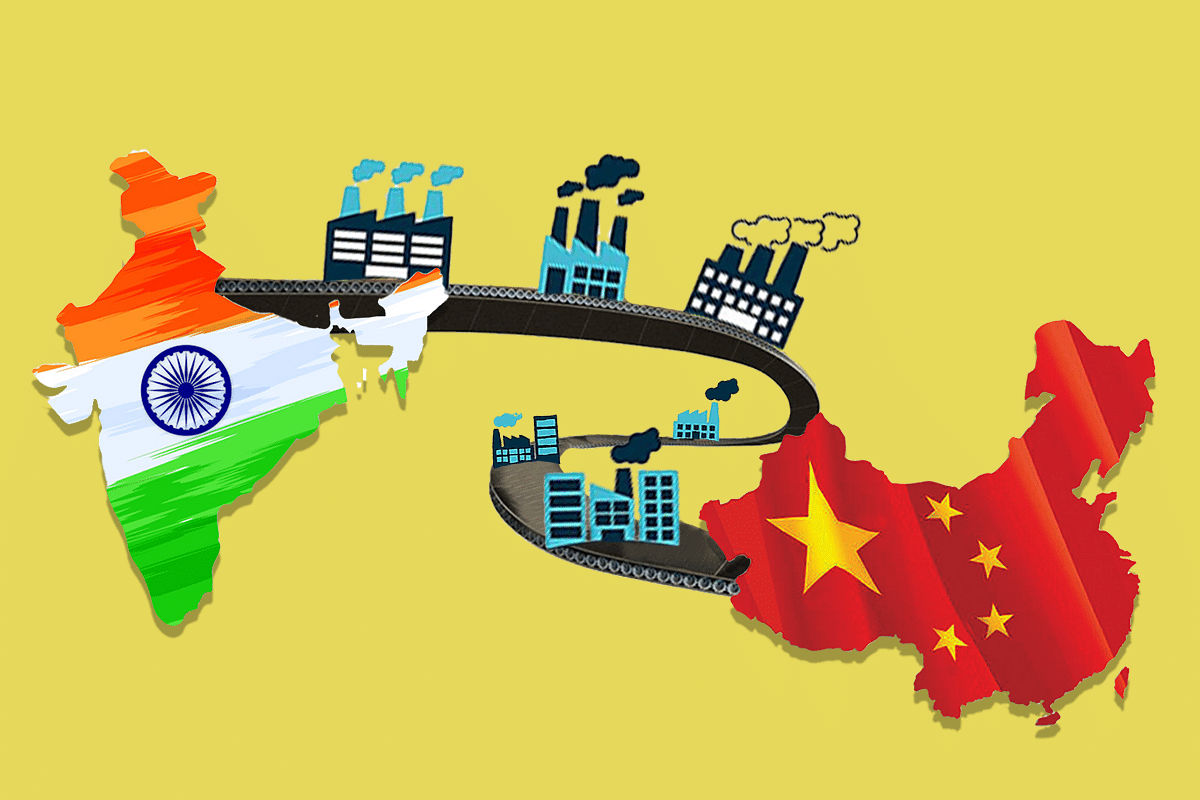News Brief
PLI Scheme Success: India Reduces Dependence On China, Manufacturing Of 38 Active Pharma Ingredients Commenced In Past 18 Months

Maps of India and China. (Illustration: Swarajya Magazine)
India has achieved significant success in reducing its dependence on China for active pharmaceutical ingredients (APIs).
Production of 38 APIs, that were previously heavily reliant on imports, has begun in the country, according to Union health minister Mansukh Mandaviya.
The remarkable progress, the Minister added, was made possible through the implementation of the production-linked incentive (PLI) initiative within the pharmaceutical sector.
Addressing the inaugural Healthcare Summit at the Indian Institute of Management-Ahmedabad, Mandaviya highlighted that the motivation for this strategic shift towards self-sufficiency arose in the aftermath of the 2017 border conflict with China in Doklam.
The conflict prompted India to re-evaluate its dependence on a single source for 95 per cent of APIs used in the formulation industry.
Through the PLI scheme, the government aimed to eliminate the need for importing 54 APIs from foreign sources and instead promote domestic production for the formulation industry.
"Today, I’m pleased to announce that within just a year and a half, India has successfully initiated the manufacturing of 38 APIs, illustrating a prime instance of Atmanirbhar Bharat," stated the Union Health Minister.
The government's commitment to fostering self-reliance in the pharmaceutical sector is evident in its substantial allocation of Rs 15,000 crore budget under the PLI scheme, as per Mandaviya.
The Union Health Minister also emphasised the government's core objective of enhancing healthcare accessibility and affordability, particularly in rural areas.
To achieve this goal, there has been a significant expansion of medical education, with the number of MBBS seats increasing from 52,000 to 107,000 over the past nine years.
Additionally, the establishment of 54 new medical colleges has been approved to address the shortage of medical professionals.
The COVID-19 pandemic prompted a comprehensive re-evaluation of healthcare strategies, inspiring a fresh approach to planning, redevelopment, and innovation in the sector, Mandaviya stated.
He expressed confidence in India's intellectual and human resources and stressed the importance of recognising the aspirations of the youth and creating opportunities for their growth and fulfillment.
Support Swarajya's 50 Ground Reports Project & Sponsor A Story
Every general election Swarajya does a 50 ground reports project.
Aimed only at serious readers and those who appreciate the nuances of political undercurrents, the project provides a sense of India's electoral landscape. As you know, these reports are produced after considerable investment of travel, time and effort on the ground.
This time too we've kicked off the project in style and have covered over 30 constituencies already. If you're someone who appreciates such work and have enjoyed our coverage please consider sponsoring a ground report for just Rs 2999 to Rs 19,999 - it goes a long way in helping us produce more quality reportage.
You can also back this project by becoming a subscriber for as little as Rs 999 - so do click on this links and choose a plan that suits you and back us.
Click below to contribute.
Latest